Are you sneezing wrong? Expert reveals the mistakes which spread disease
As winter temperatures continue to drop a disease expert has warned that simple errors like sneezing incorrectly, touching your face too much and failing to clean your work station may be helping to spread disease.
Despite knowing how important it is to minimse the spread of germs, it seems we’re not doing enough to safegurd ourselves and those around us from catching the flu and other airborne illness, like gastro-intestinal viruses.
The key things we are doing wrong are simple to rectify, according to disease expert and Director of the NSW Health’s Communicable Disease Branch Dr Vicky Sheppeard.
Not getting vaccinated
While it seems obvious, getting a flu shot is the most effective way to help prevent getting sick during the winter, however many Australians are still overlooking it.
A strong immune system is important, but the key is having specific immunity from the particular strand of virus to fight that particular flu, Dr Sheppeard said.
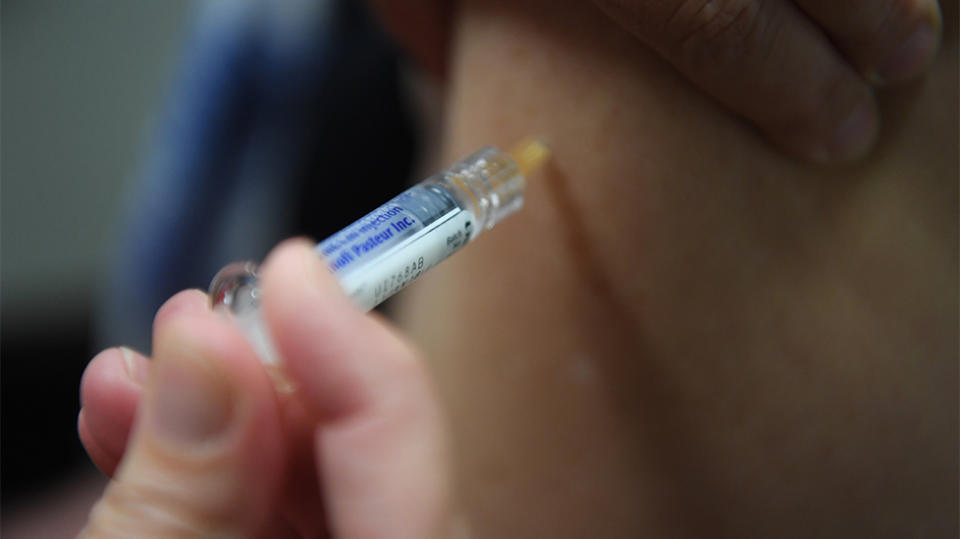
“No matter how robust your immune system is, the flu shot is the best prevention you can have against the flu,” she told Yahoo7.
Not washing hands properly
Germs live on surfaces for up to eight hours, so washing hands often, especially after being outside is the most effective way to reduce the spread of germs that cause respiratory disease, according to NSW Health.
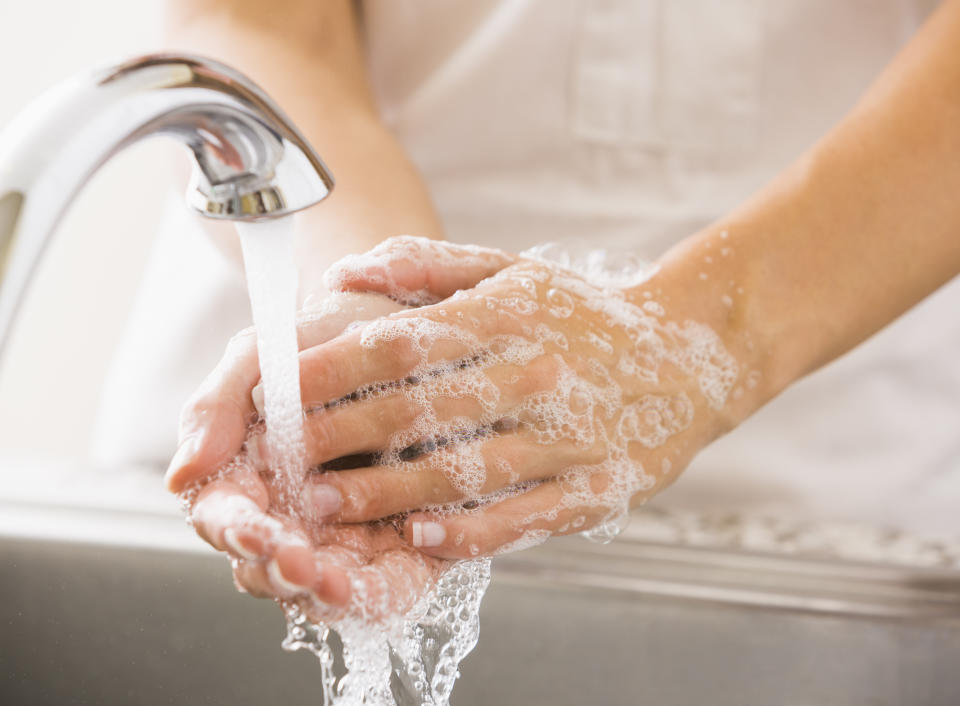
Shaking hands is a big germ-spreader, as is touching bins, lift buttons, and being out on public transport, Dr Sheppeard said.
She suggested avoiding touching public surfaces like hand rails if you can, unless required to for safety reasons.
“Washing hands frequently will reduce the risk of coming into contact with germs,” Dr Sheppeard said.
For office workers, she recommended washing hands once the morning commute is completed, or after taking a lunch break, as soon as you arrive at your desk.
Experts recommend washing hands with soap and water for about 20 seconds to ensure they are properly cleaned.
“We usually say ‘sing Happy Birthday’ as the length of time to thoroughly clean them,” Dr Sheppeard advised.
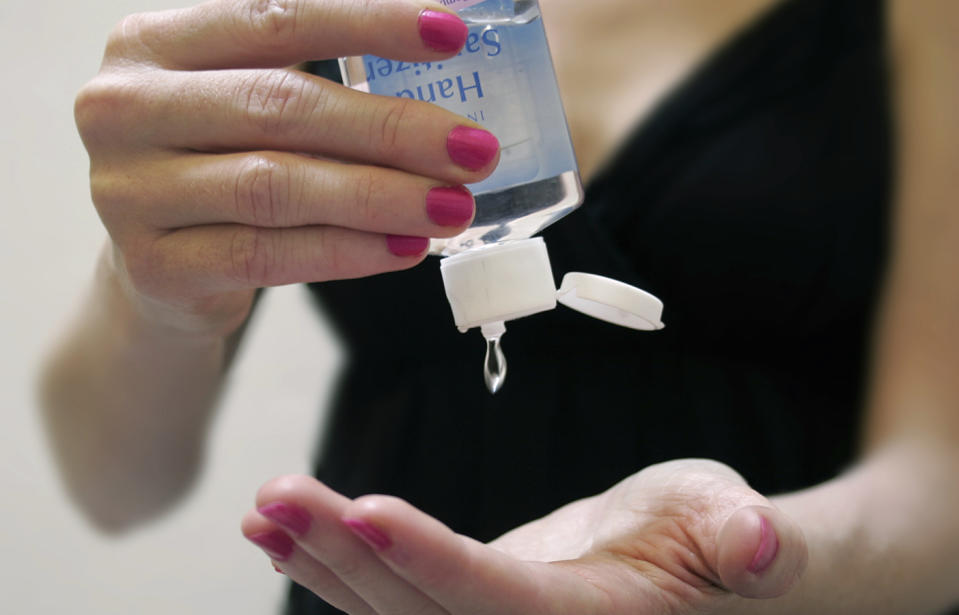
While it was not always convenient to wash your hands throughout the day, she said alcohol-based hand sanitiser was just as effective as soap and water when it comes to killing germs on our hands.
“The only time we recommend soap and water is if you have visible dirt on your hands, like if you’ve been out in the garden.”
She also said drying hands is just as important as washing them, as damp hands can also provide an environment for germs to thrive.
Touching your face
Touching surfaces other people have come into contact with is the sure way to transfer bacteria, as viruses are transferred via mucous membranes. So we need to be mindful of not transferring those germs to and from our faces, eyes, noses, and mouths, experts say.
“The way the flu is spread, people have the infection in their nose or throat,” Dr Sheppeard warned.
“It’s really important to wash your hands before touching your face.”
Coughing and sneezing ‘wrong’
While the immediate response to block a sneeze is with your hands, experts are discouraging this behaviour, as it can help spread sickness.
NSW Health reminded people to use a tissue to cover their nose and mouth when coughing or sneezing, and to dispose of it after one use, then wash your hands.
But if you don’t have a tissue, Dr Sheppeard recommended coughing or sneezing into your elbow, rather than covering your mouth with your hand then touching something.
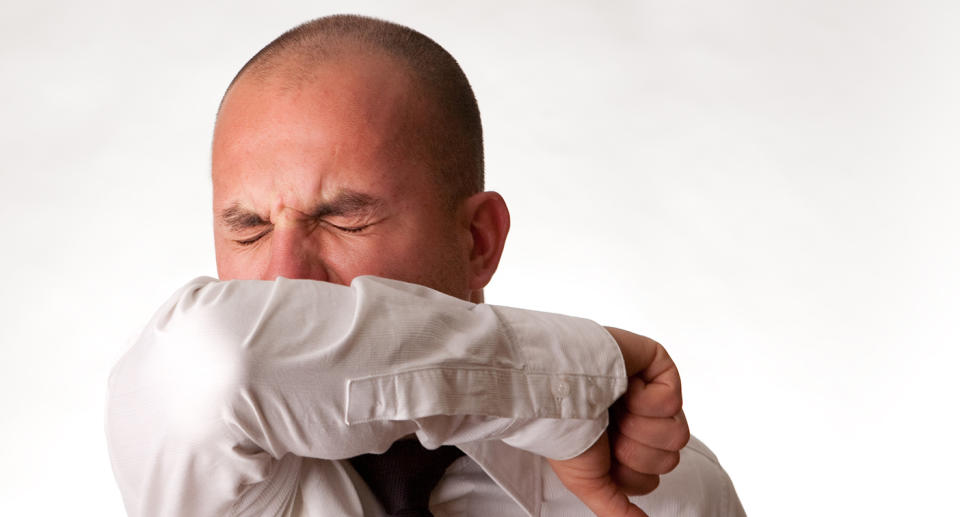
This will help contain the germs to an area less likely to come into contact with other people, or surfaces, she said.
Going to work when you’re sick
One of the most common germ-spreading culprits are those closest to you – the sick colleagues who come to work while they are contagious.
Dr Sheppeard said those who “soldier on” and come into the workplace when they are ill often underestimate the impact it will have on the people around them: co-workers and people on public transport.
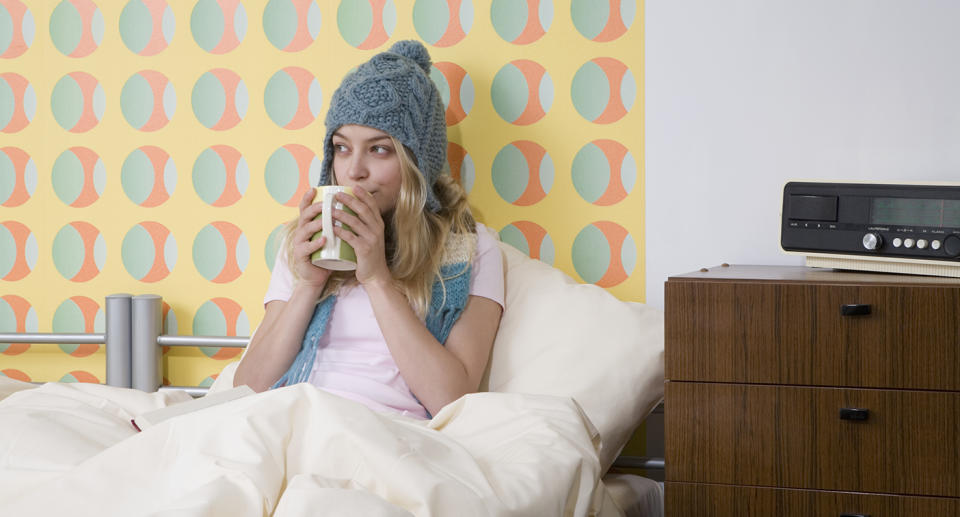
“Stay at home,” she advised. “It could mean the next person in the office comes down with the flu. You’re not doing anyone a favour.”
Another workplace problem is hot desking or desk sharing, where multiple people can use the same computers and work stations.
Dr Sheppeard suggested having a bottle of hand sanitiser at your desk and cleaning your computer, keyboard, mouse, and phone with antiseptic wipes at the start and end of shifts.
Sending young children to pre-school or childcare if they are unwell can also spread viruses even further, so the disease expert urged parents to keep their sick kids at home.
“Healthy adults will usually clear [the cold or flu] in a couple days, whereas children can carry it on for longer. Children contribute a great deal to the spread of communicable diseases,” Dr Sheppeard said.


